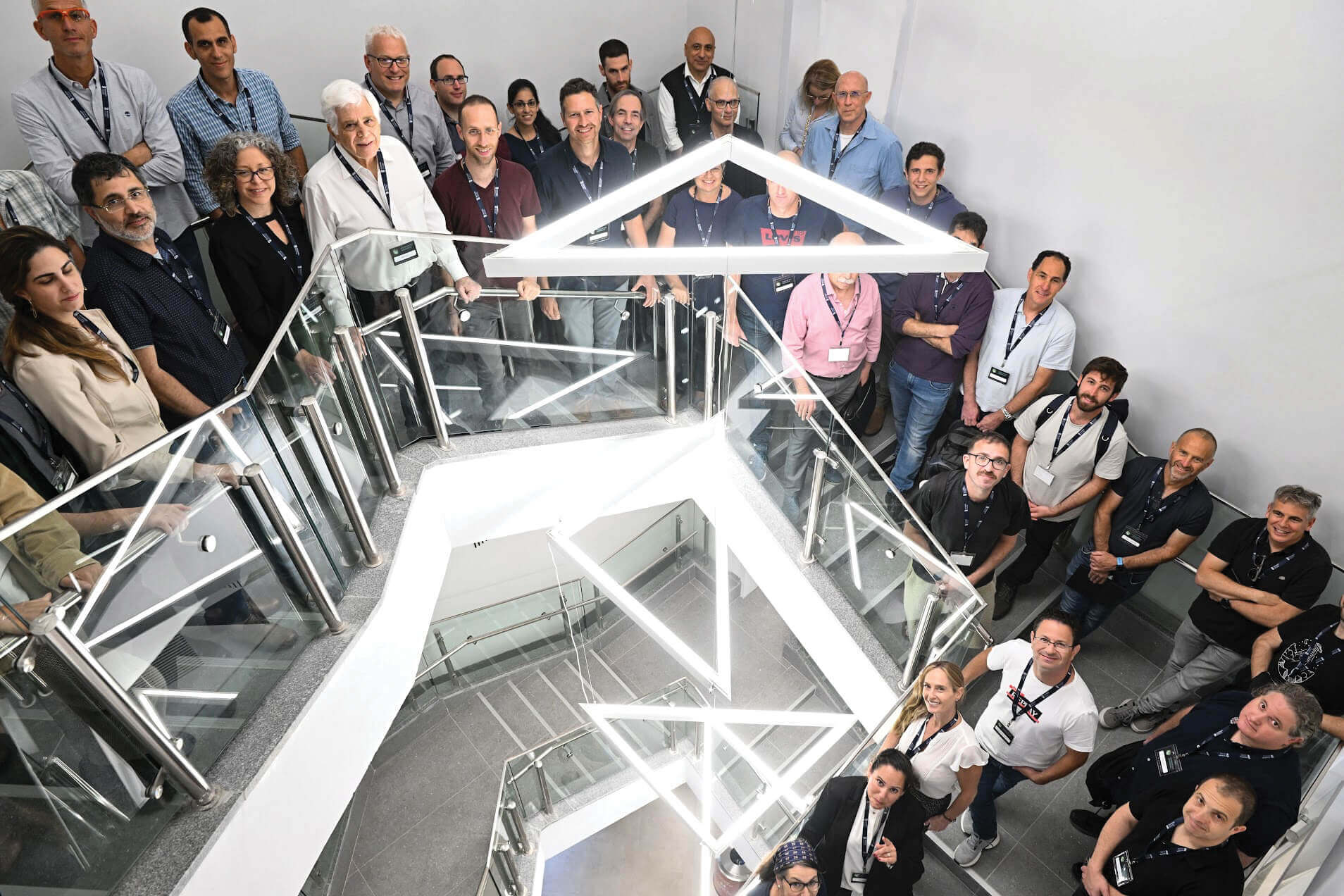Since its founding nearly 100 years ago, the Technion’s world-class scientists have focused on developing innovative and cutting-edge technologies crucial not only for Israel’s economy, society, and security, but also for humanity.
Well before climate change became a buzzword on the lips of many, the university’s researchers prioritized solutions to promote sustainability and help reverse our planet’s grim prognosis. In March, United Nations’ Secretary-General António Guterres warned that “the climate time-bomb is ticking,” after a report cautioned that the world faces an even tighter deadline to avoid catastrophic climate change disruption.
At the Technion, a wide range of activities and resources are directed towards improving sustainability across a spectrum of sectors including energy, transportation, health, agriculture, food, materials and more. To oversee and coordinate all these different activities in a more efficient manner, the Technion recently set up its Sustainability Frontier: a central body tasked with coordinating and expanding the university’s numerous programs that work to mitigate climate change.
Headed by Prof. Avner Rothschild from the Department of Materials Science and Engineering, the aim of the Sustainability Frontier initiative is to further relevant research in almost every Technion department, promote academic courses and other educational projects, foster entrepreneurship and technology transfer while forging collaborations with both the public and private sectors.
Cross-Campus Research
By harnessing its excellent resources in fields such as chemistry, biotechnology, physics, biology, computer science, chemical engineering, materials engineering, food engineering, civil and environmental engineering, architecture, and town planning, the Technion is well positioned to nurture research that can help solve environment-related global problems. The scope of “green” research projects at the Technion campus is vast. Approximately 200 faculty members and hundreds of graduates, doctoral and post-doctoral students are tackling a vast variety of challenges. These include: converting solar energy into clean, storable hydrogen and electricity; designing biodegradable foams for packaging; utilizing microbiological additives to engineer “self-healing” concrete; applying big data analytics to optimize indoor energy consumption behavior; generating electricity from seaweed; and innovating nanofiber catalysts for the conversion of CO2 into alternative fuel.
Many of these projects are driven by the Technion’s culture of multidisciplinary research, which encourages scientists from different areas of expertise to join forces. In fact, the Technion has established more than a dozen research centers that focus on different facets of climate change mitigation and adaptation. Among them: the Grand Technion Energy Program, the Grand Water Research Institute, the Israeli Smart Transportation Research Center, the National Building Research Institute, and the Food and Health Innovation Center.
Two new multidisciplinary research centers have recently been added to this list. The Lynda and Stewart Resnick Center for Sustainable Processes and Catalysis, inaugurated last year, is dedicated to advancing sustainable production processes by developing new types of catalysts – i.e., substances that trigger or speed up chemical reactions and play a key role in the production of foods, drugs, materials, energy, and other products. The Carasso FoodTech Innovation Center, which will soon open on campus, will serve as a multidisciplinary hub for developing alternatives to animal-based foods that will be healthier, more sustainable, and animal-considerate.

From Ideas to Real-World Impact
The new Sustainability Frontier platform will also spur the process of transforming scientific breakthroughs emanating from the Technion’s labs into actual products and technologies that can be applied in the real world. Many inventions have the potential to make a real difference in the battle to mitigate the global climate crisis, but scientists are not necessarily always capable of translating their innovations into startup companies.
The Technion’s technology transfer office, T3, is an important link between academia and industry and has a proven track record in helping budding entrepreneurs commercialize sustainable, high-impact inventions. In fact, some of the ClimateTech startups that were born at the Technion and nurtured by T3 are today successful companies whose cutting-edge products are reaching markets around the world.
One example is H2Pro, a pioneering startup that uses innovative green energy technology invented at the Technion to produce hydrogen in an efficient, inexpensive, and safe manner, heralding a new era of green hydrogen production. H2Pro was founded in 2019 by Technion researchers Prof. Gideon Grader of the Wolfson Department of Chemical Engineering, and Prof. Avner Rothschild and Dr. Hen Dotan of the Department of Materials Science and Engineering, in collaboration with entrepreneur Talmon Marco. The company, which received an exclusive license from T3 to commercialize the technology, has raised more than $100 million and its R&D center in Caesarea employs more than 100 people, many of whom are Technion alumni.
Aleph Farms is another example of a successful startup nurtured by T3 that addresses the climate crisis. The company is a pioneer in the field of cultivated meat, having developed the world’s first cell-based ribeye steaks produced through bioprinting. The novel technology, invented in the lab of Prof. Shulamit Levenberg of the Technion’s Faculty of Biomedical Engineering, provides an excellent solution to the challenge of producing sustainable food that can feed the world while preserving the planet. Aleph Farms has also raised more than $100 million.
Green Campus
The Technion’s commitment to promoting sustainability is visible throughout the beautiful campus on Haifa’s Mount Carmel. Every effort is made to reduce energy consumption and waste throughout the university, and the Technion recently conducted a comprehensive survey to assess its total carbon footprint. The study not only analyzes electricity and water use, but also food, transportation and other sectors that impact the environment. “We are actively working to reduce our carbon footprint,” explains Prof. Rothschild, adding that, “last year, we stopped purchasing all disposable plastic dishes. The step was a big success.”
The Technion is also using its vibrant community of nearly 15,000 students, several thousand employees, and almost 600 faculty members, as a large “living lab” to assess new technologies that aim to reduce consumption and save energy. The university’s dorms, for example, have been used to test new ways to decrease electricity consumption. An important part of the Technion Sustainability Frontier’s platform is to foster outreach programs with the community at large. “We work with the Haifa Municipality, the Haifa Port, local industry, government agencies and others to promote an agenda of sustainability in Haifa, Israel and worldwide,” elaborates Rothschild.
Just as it has done for the past 100 years, the Technion is determined to continue to forge new ways to pioneer innovation while striving to improve the world.
